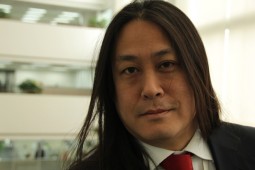 |
| Kaiser Kuo |
Kaiser Kuo:
The Civil War that followed not long after the Japanese surrender in August 1945 was arguably touch-and-go for the CCP as well, and depended very much on the dispositions of external powers, most notably Stalin’s Soviet Union and the U.S. It’s too much to go into here, but it was by no means a foregone conclusion that the CCP would emerge victorious in that fight.
Believe it or not, the Cultural Revolution also nearly brought on the collapse of the Party. People don’t remember it this way, necessarily; they conjure up images of throngs of identically-dressed Red Guards in Tiananmen all holding aloft Mao’s Little Red Book and imagine that this was the Party in absolute ascendancy. It was Mao who was in the ascendant — not the Party. Mao Zedong had turned the forces of his zealous young revolutionaries against the Party itself, and against any manifestation of its institutional authority, whether in the bureaucracy, in industry, in educational institutes, in hospitals, or even in the villages. It was actually a grim time for the Party — not its day in the sun.
More predictions in SupChina.Finally, there was of course 1989. It’s hard to say just how close the Party might have come to “collapse” in May and June of 1989. But it’s clear that there were deep schisms within the Party leadership about how to respond to the student-led protests of that year. And individual decisions made by individual unit commanders in the 38th and 27th Armies appear, sent in to quell the “turmoil” eventually, appear to have made the difference between the “successful” quashing of the student and, by mid-May, also working-class demonstrators, on the one hand; and what just might have been civil war.
Kaiser Kuo is a speaker at the China Speakers Bureau. Do you need him at your meeting or conference? Do get in touch or fill in our speakers' request form.
Are you looking for more political experts at the China Speakers Bureau? Do check out this list.